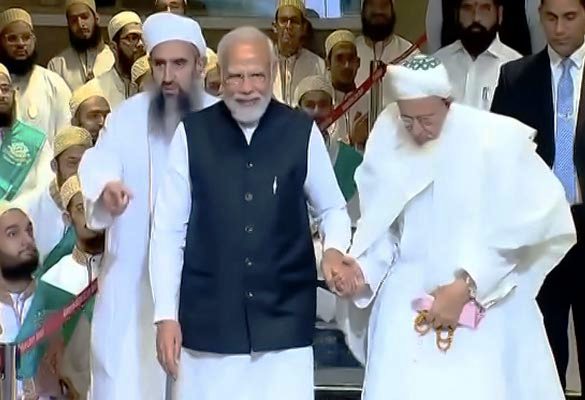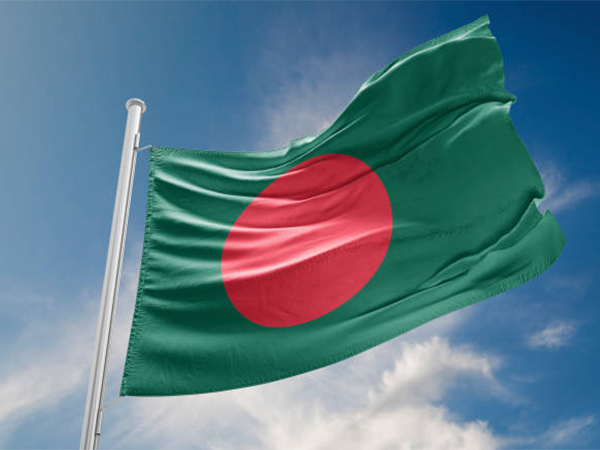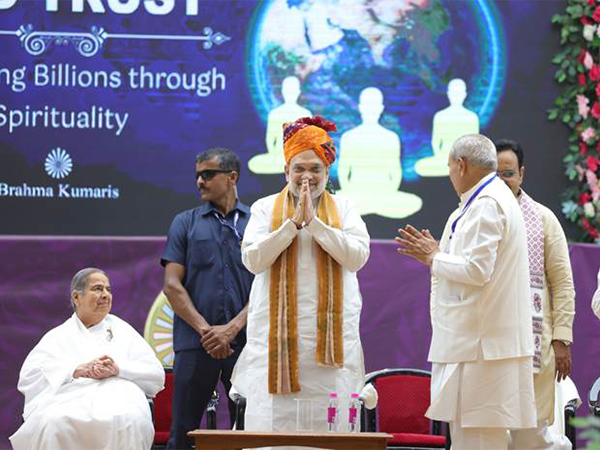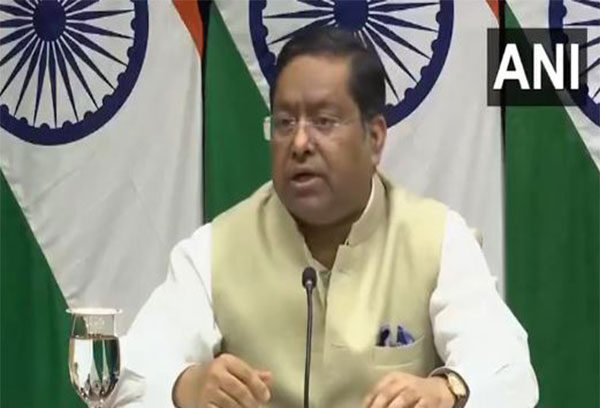Prime Minister Narendra Modi on Thursday praised the Dawoodi Bohra community for their significant contribution in shaping the Waqf (Amendment) Act, saying their involvement extended to even the smallest technical details — “even down to commas and full stops.”
PM Modi also lauded Dawoodi Bohra spiritual leader Syedna Mufaddal Saifuddin for playing a key role in the drafting process.
“Perhaps very few of you know that when I first got the idea of working on the Waqf (Amendment) Act, the first person I consulted was Syedna Sahib,” PM Modi told the delegation.
He said Syedna Saheb gave his full support and even sent members of the Bohra community to help with the legal review and drafting of the law.
“He smiled and later sent you to me. After that, I kept bothering him for three years, asking him to look at it in his own way, to give me legal advice, to give me a draft. You cannot imagine how much support he gave me during the consultation.”
The Prime Minister added that the community’s involvement went into the smallest technical details.
“He brought in knowledgeable people from your community, and even down to commas, and full stops — I received help at every step.”
PM Modi also reflected on his long-standing connection with the Dawoodi Bohra leadership and said discussions around Waqf issues go back many years.
“You might remember, when your grandfather, Syedna Saheb, who lived to be 99 or 100, once came to my home — we started talking about the Waqf issue even back then.”
He said he understands the community’s concerns about encroachments on sacred lands and stressed the importance of empowering honest caretakers of Waqf properties.
“If there is anyone who can present the best model of how the spirit of Waqf should work, and for whom it should be done, it’s Saheb Sahena.”
PM Modi said one of the main motivations for the reform came from complaints by Muslim women.
“After my 2019 victory, there were over 1,700 complaints from the Muslim community. Most of these were from women and daughters seeking justice. That’s when I truly understood the reality on the ground.”
He said the government spent five years studying the issue and consulted religious leaders from different sects, including Shia Muslims.
“Whether it’s the larger Muslim society or the Shia Muslims, all of them face challenges with the Waqf board and Hadiya.”
He explained that the aim of the new system is to bring justice to the poorest and most vulnerable.
“When the prayers of the poorest people come to you, their power multiplies many times. Our job is to give authority and system control to such honest people — and that’s the fight we’re fighting.”
The Prime Minister thanked the Bohra community for their support and said he was happy to meet them again.
The Waqf (Amendment) Bill, 2025, was passed to improve the management of Waqf properties. It focuses on empowering those involved in Waqf property management, improving survey, registration, and case disposal processes, and promoting development using modern and scientific methods. The Mussalman Wakf Act of 1923 was also repealed.
The bill, first introduced in August last year, was revised based on suggestions by a Joint Parliamentary Committee. It amends the original Waqf Act of 1995 and aims to streamline the administration of Waqf properties across India. Key changes include a better registration system and more use of technology to improve Waqf board operations.
The new law is designed to fix the shortcomings of the earlier act and make Waqf boards work more efficiently. (ANI)









